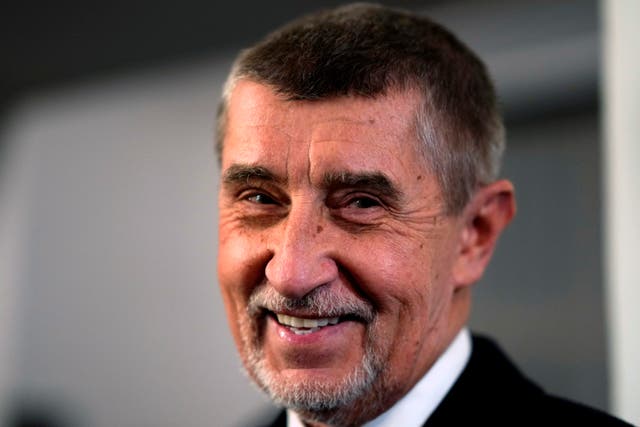Petr Pavel, a retired army general, decisively defeated populist billionaire Andrej Babis in a run-off vote on Saturday to become the Czech Republic’s new president.
Mr Pavel, 61, will succeed controversy-courting Milos Zeman in the largely ceremonial but prestigious post. His election is expected to cement the country’s Western orientation following Zeman’s decade in office.
With all the ballots counted by the Czech Statistics Office, Mr Pavel had 58.3% of the vote compared with 41.7% for Mr Babis. Turnout was just over 70%, a record high for a presidential vote.
“We can have different views of a number of issues, but that doesn’t mean we’re enemies,” Mr Pavel said in a message to voters who cast ballots for Babis after what was considered a nasty presidential campaign period. “We have to learn how to communicate with each other.”

Mr Babis conceded defeat and congratulated Pavel on his victory. He called on his supporters “to accept that I’ve lost and accept we have a new president.”
Mr Pavel, who ran as an independent, is a former chairman of Nato’s military committee, the alliance’s highest military body.
He fully endorsed the Czech Republic’s military and humanitarian support for Ukraine in its fight against Russia’s invasion and stresses the importance of the country’s membership in the European Union and Nato.
“Foreign policy is his strong point,” Petr Just, an analyst from the Metropolitan University Prague, said. Mr Just noted that Mr Pavel’s NATO experience and views would “boost” the country’s Western leanings.
The president picks the prime minister after a general election, one of the office’s key responsibilities, and appoints members of the central bank. The office-holder also selects Constitutional Court judges with the approval of Parliament’s upper house.
Otherwise, the president has little executive power since Czechia is run by a government chosen and led by the prime minister.
President Zuzana Caputova of Slovakia, who beat established politicians to win her country’s 2019 presidential election, joined Mr Pavel on a Prague stage Saturday to congratulate him in front of his supporters.
“Your victory is a victory of hope, of hope that decency and honesty is not a weakness but a power that could lead to victory even in politics,” Ms Caputova said.
“Personally, I’m happy that we have a new head of state in our region and Europe who respects democratic values,” she said.
Mr Pavel said he planned to travel to Slovakia and Ukraine for his first foreign trips as president, and also to Poland to assure president Andrzej Duda that his country fully respects its Nato commitments and the alliance’s principle of collective defence.
Ukrainian president Volodymyr Zelensky congratulated Mr Pavel in a tweet written in Czech, adding he looked forward to their close co-operation.
Czechia has been a firm supporter of Ukraine in its fight against Russia’s invasion. The Ukraine war was a core campaign issue. Mr Babis presented himself as a peacemaker and labelled Mr Pavel a warmonger due to his military past.




Why are you making commenting on The National only available to subscribers?
We know there are thousands of National readers who want to debate, argue and go back and forth in the comments section of our stories. We’ve got the most informed readers in Scotland, asking each other the big questions about the future of our country.
Unfortunately, though, these important debates are being spoiled by a vocal minority of trolls who aren’t really interested in the issues, try to derail the conversations, register under fake names, and post vile abuse.
So that’s why we’ve decided to make the ability to comment only available to our paying subscribers. That way, all the trolls who post abuse on our website will have to pay if they want to join the debate – and risk a permanent ban from the account that they subscribe with.
The conversation will go back to what it should be about – people who care passionately about the issues, but disagree constructively on what we should do about them. Let’s get that debate started!
Callum Baird, Editor of The National
Comments: Our rules
We want our comments to be a lively and valuable part of our community - a place where readers can debate and engage with the most important local issues. The ability to comment on our stories is a privilege, not a right, however, and that privilege may be withdrawn if it is abused or misused.
Please report any comments that break our rules.
Read the rules here